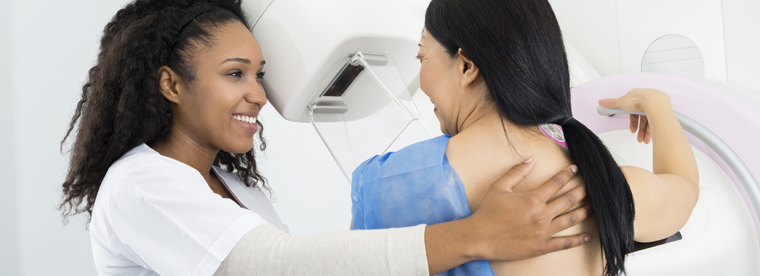Educational intervention by community health workers was found to have a positive impact on perceptions of mammogram safety and efficacy in breast health and cancer awareness, recent research from the Washington Cancer Institute found.
“Take care of your neighborhood” was published in the January edition of Breast Cancer Research and Treatment. The research team was led by Elmer E. Huerta, MD, MPH, from the Washington Cancer Institute at MedStar Washington Hospital Center. The team also included Patricia Weeks-Coulthurst, Courtney Williams, and Sandra M. Swain, MD, FACP, also from Washington Cancer Institute at MedStar Washington Hospital Center.
Through a two-phase process, community health workers connected with and surveyed women who lived in Ward 5 in Washington D.C., region that showed high rates of breast cancer despite almost universal access to health insurance and healthcare.
In the first phase, health workers educated and administered a survey to 1092 women, 95.1% had health insurance, in order to identify potential causes for high rates of advanced breast cancer despite having health insurance and access to healthcare.
Building on data collected in phase one, an intervention was developed in order to increase education among the target population. The community health workers provided this intervention to 658 participants from Ward 5.
Through pre- and post-intervention surveys with the participants, the impact of the intervention could be assessed in comparison of knowledge and beliefs about breast health and cancer screenings.
The initial phase found that “respondents most often identified personal factors (28.7%) and fear (27.7%) to explain the high rate of advanced breast cancer despite health insurance status.”
The educational intervention positively impacted the participant's perceptions on the safety and efficacy of mammograms, with an absolute 15.4% increase in the respondents who believed that “A mammogram is the safest and most effective test available for finding early breast cancer.” The study found that some perceived barriers which discouraged participants from getting mammograms included access to care (17.0%), pain (13.2%), and education (13.1%).
The research concludes that in an urban population of “predominantly insured women with high rates of advanced breast cancer at diagnosis, personal factors and fear were cited as the greatest barriers to breast cancer screening.” The educational intervention resulted in a positive impact on respondents’ perceptions regarding mammogram safety and efficacy.
Breast Cancer Research and Treatment, 2018. DOI: 10.1007/s10549-017-4492-1

